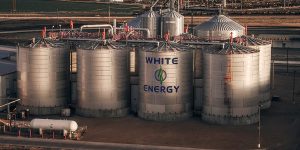 GROWMARK Energy is adding to the number terminals around the Midwest offering pre-blended E15, according to the Renewable Fuels Association, which has worked closely with the farmer-owned cooperative on related issues such as regulatory compliance and adoption of RFA’s Misfueling Mitigation Plan (MMP).
GROWMARK Energy is adding to the number terminals around the Midwest offering pre-blended E15, according to the Renewable Fuels Association, which has worked closely with the farmer-owned cooperative on related issues such as regulatory compliance and adoption of RFA’s Misfueling Mitigation Plan (MMP).
GROWMARK will now offer pre-blended E15 at Magellan terminals in – Bettendorf and Des Moines, Iowa; Carthage, Palmyra, and Springfield Mo.; Doniphan and Omaha, Neb.; Oklahoma City and Enid, Okla.; Fort Smith and N. Little Rock, Ark.; Heyworth, Ill.; Kansas City, Scott City, Topeka and Wichita, Kansas; and Sioux Falls, S.D.
These are in addition to the GROWMARK-owned terminals in Amboy, Ashkum, and Petersburg, Ill., Fort Dodge, Iowa, and St. Joseph, Mo. that began offering pre-blended E15 in November 2018.
“GROWMARK Energy continues to provide new opportunities for retailers and ultimately greater competition in renewable fuels that benefits consumers,” said RFA Vice President of Industry Relations Robert White. “RFA will continue to work with interested retailers serviced by these terminals to assist them with the transition to offering E15 at retail.”
White also points out that the terminals will only be able to offer E15 from Sept. 16-April 30, unless a formal rulemaking allowing a one pound RVP waiver is issued by summer.












